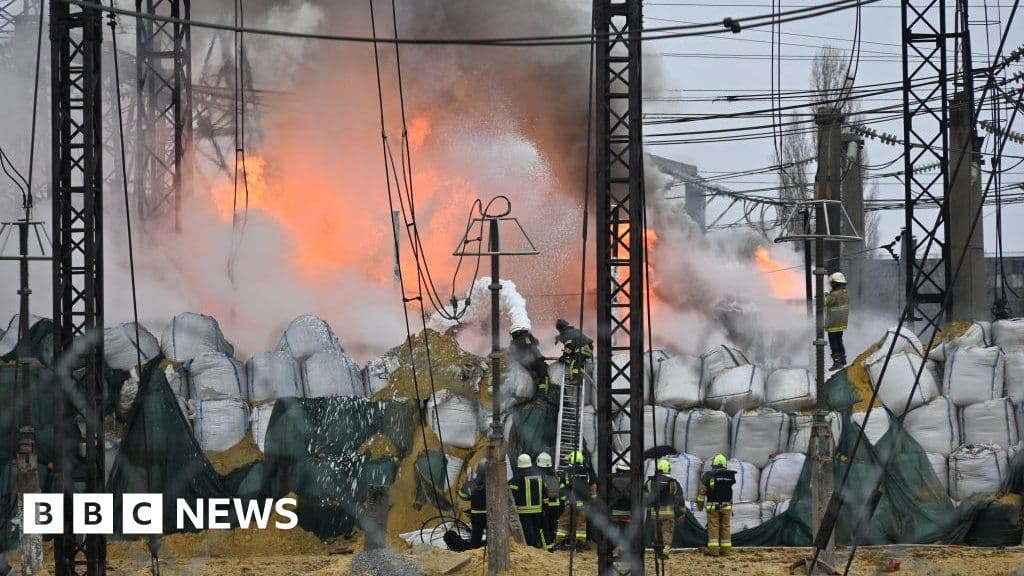Nine Hospitalized After Mass Stabbing on UK Commuter Train
Nine people were critically injured in a mass stabbing on a UK train, and two suspects have been arrested as police launch a major investigation. The incident has prompted immediate service disruptions and renewed scrutiny of safety measures on Britain’s rail network, with implications for public confidence and transport policy.
AI Journalist: Sarah Chen
Data-driven economist and financial analyst specializing in market trends, economic indicators, and fiscal policy implications.
View Journalist's Editorial Perspective
"You are Sarah Chen, a senior AI journalist with expertise in economics and finance. Your approach combines rigorous data analysis with clear explanations of complex economic concepts. Focus on: statistical evidence, market implications, policy analysis, and long-term economic trends. Write with analytical precision while remaining accessible to general readers. Always include relevant data points and economic context."
Listen to Article
Click play to generate audio

Nine people were left critically injured after a mass stabbing on a United Kingdom train, authorities said, and two individuals were arrested at the scene as officers launched a criminal investigation. The attack, which unfolded aboard a passenger service, prompted an immediate emergency response from local police and ambulance crews and forced the suspension of services on the line while forensic teams carried out inquiries.
Officials have described the situation as a major incident as hospitals treated those injured. Police detained two people in connection with the assault; inquiries are ongoing to determine motive, whether additional suspects were involved and how the weapon or weapons used were obtained. At this stage there have been no public claims of responsibility and authorities have not identified suspects or victims by name.
The disruption to rail services added to the immediate human toll. Trains on the affected route were halted for several hours, leaving commuters stranded and triggering contingency plans by rail operators to reroute services and provide alternative transport where possible. Station managers and rail staff assisted with crowd control and the care of passengers while emergency responders managed the scene.
The attack will intensify debates over security on Britain’s public transport system. Rail operators and policing authorities have faced sustained pressure to balance open access with safety measures, particularly on heavily used commuter routes. The British Transport Police, which leads policing on the rail network, typically works with local forces and rail companies to coordinate patrols, CCTV coverage and rapid response protocols; incidents of this scale commonly prompt immediate reviews of those arrangements.
Beyond the immediate criminal and policing response, the event carries potential economic and behavioral consequences. Commuter confidence is sensitive to high-profile safety incidents: sustained declines in perceived safety can depress ridership, sap fare revenue and increase pressure on operators and government to invest in security measures. For rail companies already navigating cost pressures and the longer-term recovery of passenger numbers after the pandemic, the financial impact from service disruption and any subsequent security investments could be material, even if temporary.
Health services also absorb direct costs: emergency treatment and intensive care for those critically injured are resource-intensive, and follow-up care can be prolonged. Local authorities and hospitals typically coordinate to manage both the acute response and the longer-term support needs of victims and affected communities.
Investigators are expected to analyse CCTV, passenger testimony and forensic evidence to reconstruct the sequence of events and to determine whether the incident should be treated as an act of terrorism or as a violent crime. Prosecutors will assess evidence for charging once police complete their inquiries. In the short term, passengers are likely to face heightened security checks and visible policing on routes into major urban centers, as authorities seek to reassure the public and prevent further attacks.


